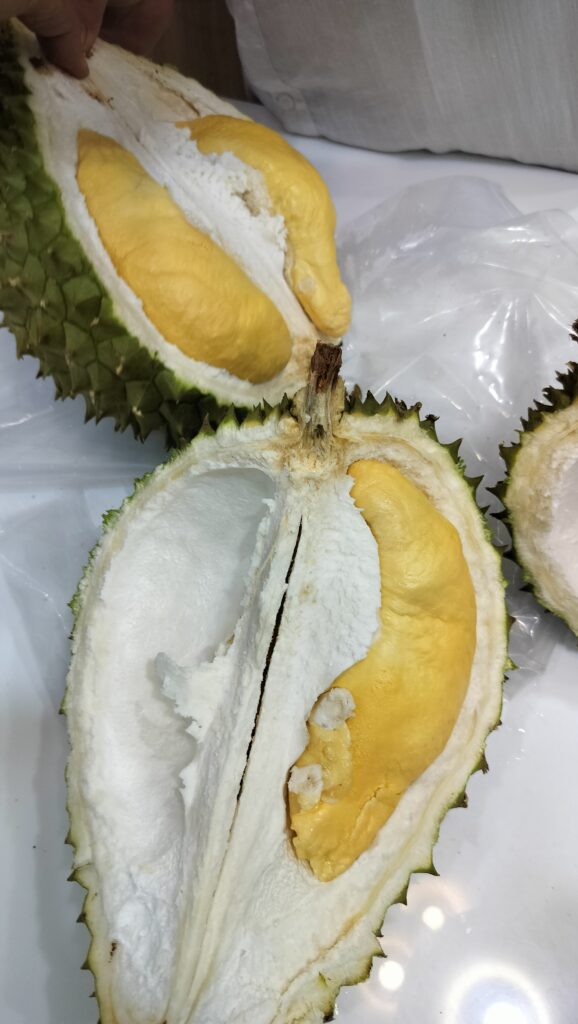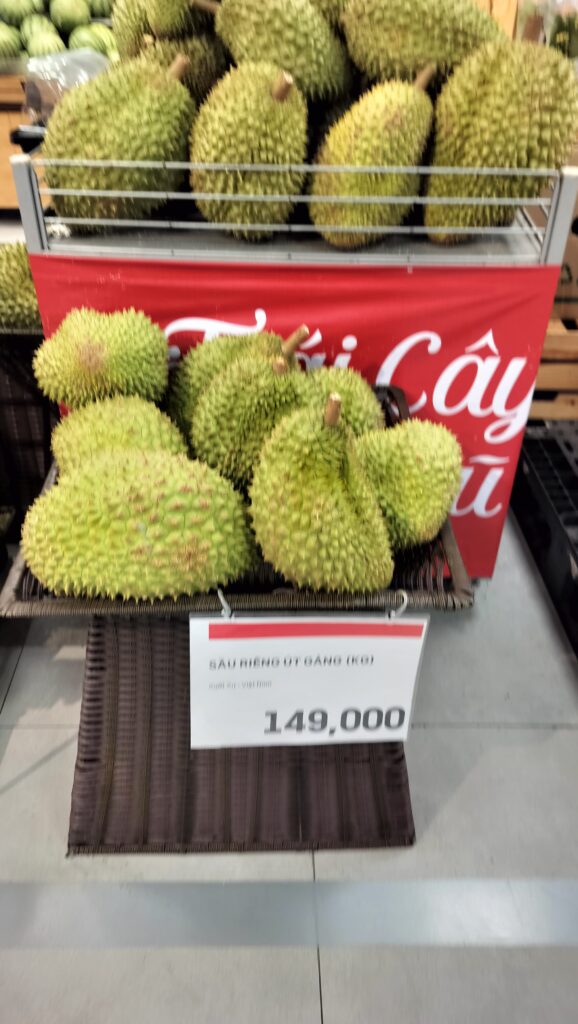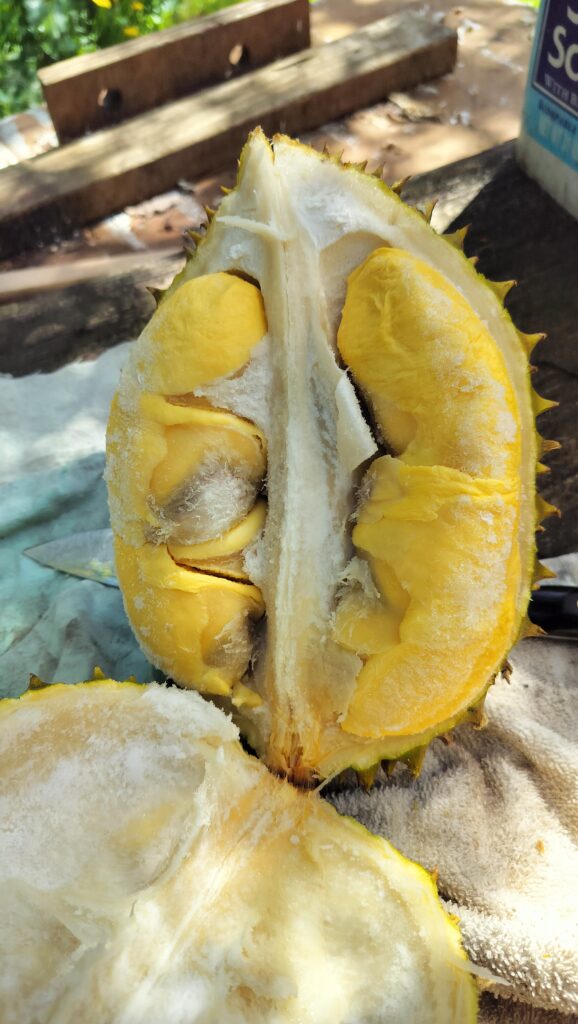ILoveDurian.com domain is for sale :https://www.domaineasy.com/buy-domain/ilovedurian.com
The Power of Durian
The “power of durian” can be interpreted in a few different ways

depending on what you’re referring to — its nutritional value,
cultural significance, or even its controversial impact. Here’s a

breakdown of the different “powers” of durian:

- Nutritional Power
Durian is an energy-dense fruit with many health benefits:
High in Energy: Around 150–160 kcal per 100g, due to its high fat and
carbohydrate content.
Rich in Fiber: Aids digestion and promotes gut health.
Vitamins & Minerals:
Vitamin C (boosts immune system)
B Vitamins (energy production, brain health)
Potassium (supports heart health and blood pressure regulation)
Natural Sugars: Provides a quick energy boost.
Antioxidants: Help reduce inflammation and may protect against chronic diseases.
- Aphrodisiac Reputation
In some Southeast Asian cultures, durian is believed to have
libido-enhancing properties. There’s even a saying:

“When the durians fall, the sarongs fly.”
While not scientifically proven, it’s thought to increase body heat
and blood flow.
- Cultural Power
Considered the “King of Fruits” in many Southeast Asian countries.
A symbol of wealth and status — premium durians like Musang King can
sell for very high prices.
Used in festivals, rituals, and as diplomatic gifts.
- Controversial Power (Smell!)
Durian’s odor is powerful enough to get it banned from hotels, planes,
and public transport.
Despite this, fans say the taste is heavenly once you get past the
smell — “smells like hell, tastes like heaven.”
Would you like a deep dive into its nutritional breakdown, a cultural
story involving durian, or even how it compares to other
“superfruits”?ink&utm_campaign=sig-email&utm_content=webmail>
Virus-free.www.avg.com
<http://www.avg.com/email-signature?utm_medium=email&utm_source=link&utm_campaign=sig-email&utm_content=webmail>
<#DAB4FAD8-2DD7-40BB-A1B8-4E2AA1F9FDF2>
What is Durian
Durian is a tropical fruit known for its large size, spiky outer shell, and strong smell. It’s native to Southeast Asia and often referred to as the “king of fruits.” Here’s a quick breakdown:
Appearance:
- Size: Typically the size of a football, can weigh 1–3 kg (2–7 lbs).
- Exterior: Covered in thick, hard spikes.
- Interior: Contains several large seeds surrounded by creamy, custard-like flesh.
Taste & Smell:
- Smell: Extremely pungent — people often describe it as a mix of rotten onions, turpentine, and raw sewage. Because of this, it’s banned in many public places (like hotels and subways) in parts of Asia.
- Taste: Polarizing. Some love it for its sweet, rich, almond-like flavor; others find it unbearable.
Culinary Use:
- Eaten raw or used in sweet and savory dishes (e.g., durian ice cream, pastries, or curry).
- Popular in countries like Malaysia, Thailand, Indonesia, and the Philippines.
Nutritional Facts:
- High in calories, carbohydrates, fiber, and healthy fats.
- Contains vitamins like vitamin C and B-complex, and minerals like potassium and magnesium.